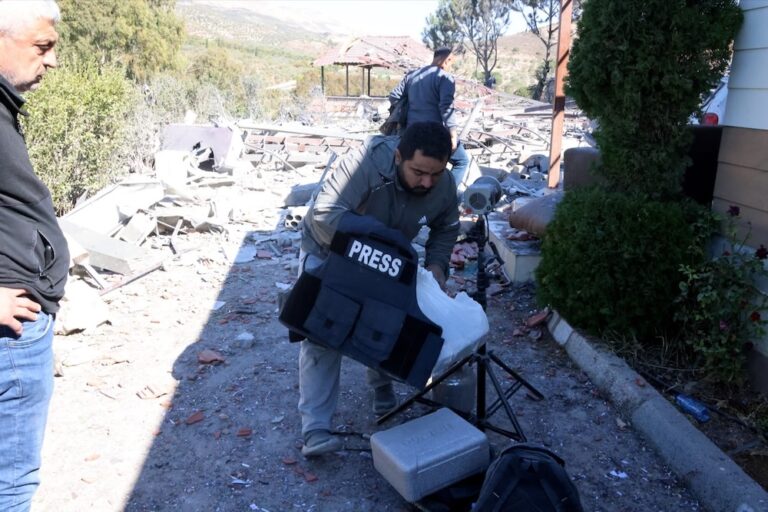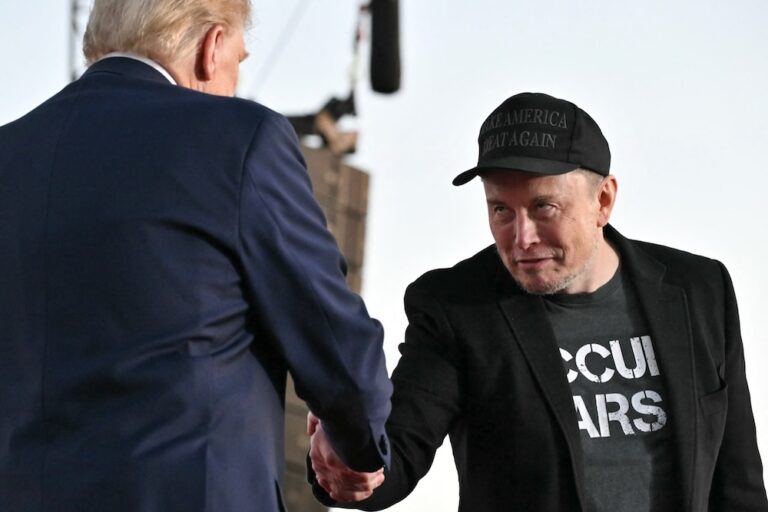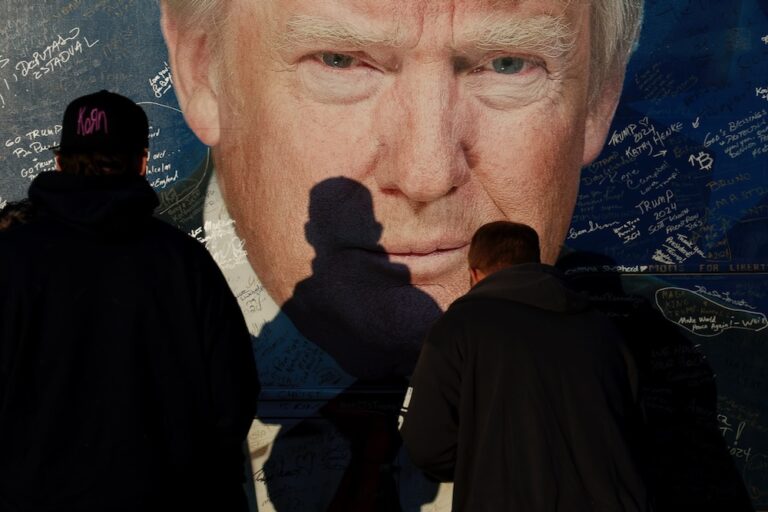(RSF/IFEX) – Reporters Without Borders has welcomed the decision of the US Supreme Court declaring illegal the military tribunals which were due to try prisoners detained by the US military at the Guantánamo military base. The press freedom organisation hailed the decision as a victory for law, which would perhaps mark a first step towards […]
(RSF/IFEX) – Reporters Without Borders has welcomed the decision of the US Supreme Court declaring illegal the military tribunals which were due to try prisoners detained by the US military at the Guantánamo military base.
The press freedom organisation hailed the decision as a victory for law, which would perhaps mark a first step towards release for Sami Al-Haj, a Sudanese cameraman of the Qatari-based al-Jazeera TV, who has been held there without charge since 13 June 2002.
“This decision is of crucial importance in that it will not allow any country to get round international law, in this case the Geneva Conventions on prisoners of war. However we fear that the Congress, which will now decide on the legal framework for the Guantánamo detainees, which will in turn contradict the Supreme Court.
“In providing this triumph of law over injustice, the top jurisdiction has implicitly condemned the judicial and humanitarian scandal which Guantánamo represents. We hope that in future this decision, which will not unfortunately lead to the closure of the camp, will at least force the US authorities to urgently release Sami Al-Haj, held for no reason for four years,” it said.
The federal Supreme Court voted five to three on 29 June 2006, saying that President George W. Bush had “exceeded his powers” and “violated the Geneva Conventions on prisoners of war” by setting up military tribunals to try those whom the US Administration calls “enemy combatants.”
The decision follows an appeal by Salim Hamdan, a former driver for Osama Bin Laden, who was arrested in Afghanistan in November 2001 and charged with “plotting against the United States” in July 2003 by a military tribunal. The accused contested the emergency procedure that was put in place after the 11 September attacks without the backing of Congress.
As soon as the Supreme Court ruling was given, the US Senate presented a first draft of a new law to provide a legal framework for the Guantánamo prisoners. The study, drawn up by Arlen Specter (Republican, Pennsylvania), chairman of the upper chamber judicial committee, would officially allow the US president to set up “army exemption tribunals” to try detainees at a first hearing and on appeal.
The Senate’s draft would put in place, in addition to these army exemption tribunals, two new special jurisdictions, one to decide within 30 days if a prisoner is an “enemy combatant” and comes under the Geneva Conventions, the other responsible for reviewing every six months whether a prisoner should be sent back to his own country.
Guantánamo currently holds 440 prisoners, including the Sudanese al-Jazeera cameraman Sami Al-Haj, arrested by Pakistani security forces on the Afghan border in December 2001 and handed over to the US Army in January 2002. The journalist is suspected of being an “enemy combatant” on the basis that he had entered Afghan territory illegally in October 2001 at the time of US air strikes, that he allegedly ran a website supporting terrorism, that he was allegedly involved in arms-trafficking and that he interviewed Osama Bin Laden. There was no investigation and no witnesses to back up the accusations.
Al-Haj, who has throat cancer and has been denied treatment and contact with his family, has told his British lawyer, Clive A. Stafford Smith, that he has been interrogated 130 times since the start of his imprisonment. The interrogation sessions designed to get him to confess to links between al-Jazeera and al-Qaeda, were punctuated with torture and threats against his family. Finally, the journalist told his lawyer in April that he had thought about suicide.
The London-based Reprieve, which provides free legal representation to 36 Guantánamo Bay detainees, welcomed the 29 June Supreme Court ruling. “The Bush administration has tried to say the men have no rights, have no access to the courts, have no power to challenge the fact that they have been held for over four years without charge, without trial. The Supreme Court rejected that stance once and for all”, said senior counsel Zachary Katznelson.


